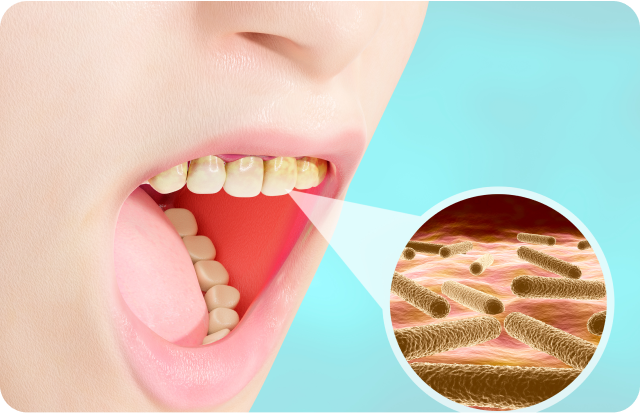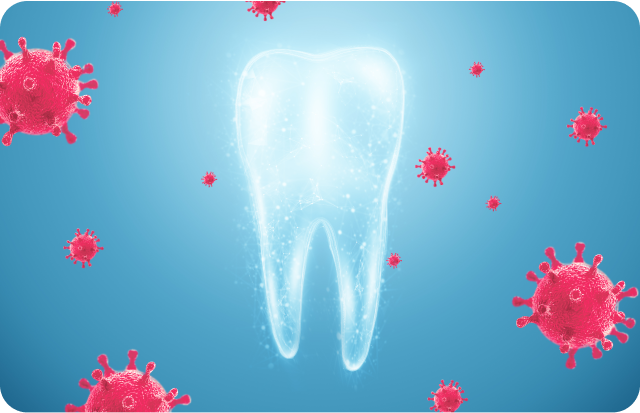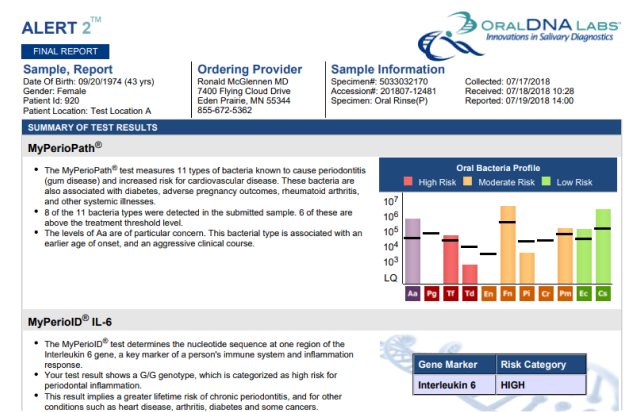
Recent studies have suggested a link between the oral microbiome and pancreatic cancer. Pancreatic cancer is a particularly aggressive form of cancer, with a five-year survival rate of less than 10%. While the exact cause of pancreatic cancer is not known, several risk factors have been identified, including smoking, obesity, and a family history of the disease.

The oral microbiome is a complex ecosystem of bacteria, viruses, and fungi that live in the mouth. When this ecosystem is disrupted, it can lead to an imbalance of harmful bacteria, which can cause gum disease and other oral health problems. These harmful bacteria can also travel to other parts of the body, including the pancreas, where they can contribute to the development of pancreatic cancer.
Studies have found that certain species of bacteria commonly found in the mouth, such as Porphyromonas gingivalis and Aggregatibacter actinomycetemcomitans, are also found in the tumors of patients with pancreatic cancer. This suggests that the bacteria in the mouth may play a role in the development and progression of the disease.



Porphyromonas gingivalis is a Gram-negative anaerobic bacterium that is commonly associated with periodontal disease, which is a severe form of gum disease, which is characterized by inflammation, destruction of gum tissue, and eventual loss of teeth if left untreated.
P. gingivalis is a rod-shaped bacterium that forms biofilms, which are complex communities of bacteria that adhere to surfaces, including teeth and gum tissue. This bacterium has the ability to evade the immune system and can produce a variety of virulence factors that contribute to its pathogenicity. Some of the virulence factors produced by P. gingivalis include enzymes that degrade gum tissue, toxins that damage host cells, and molecules that modulate the host immune response.
Research has shown that P. gingivalis is not only associated with oral health problems but also has been implicated in systemic health issues. Studies have suggested that P. gingivalis may be involved in the development of various systemic conditions, including pancreatic cancer, due to its ability to enter the bloodstream from the oral cavity and spread to other parts of the body.
Moreover, P. gingivalis has been found to produce an enzyme called gingipain, which has been shown to have direct effects on pancreatic cells. Gingipain has been shown to promote cancer cell proliferation, invasion, and migration in pancreatic cancer cells, potentially contributing to the development and progression of pancreatic cancer.


Aggregatibacter actinomycetemcomitans, formerly known as Actinobacillus actinomycetemcomitans, is a Gram-negative, facultatively anaerobic bacterium that is commonly associated with periodontal disease, which is a severe form of gum disease. A. actinomycetemcomitans is a key bacterial species involved in the initiation and progression of periodontal disease, and it has been extensively studied for its pathogenic properties.
A. actinomycetemcomitans has several virulence factors that enable its pathogenicity, including its ability to adhere to tooth surfaces and form biofilms, produce various enzymes that damage host tissues, evade host immune responses, and induce inflammation. It can also produce toxins that can cause direct damage to host cells and contribute to the destruction of gum tissue.
Some studies have suggested a potential association between A. actinomycetemcomitans and pancreatic cancer. A. actinomycetemcomitans has been detected in higher levels in the saliva and oral biofilm of patients with pancreatic cancer compared to healthy individuals, indicating a potential link between the bacterium and pancreatic cancer. However, the exact mechanisms by which A. actinomycetemcomitans may contribute to the development or progression of pancreatic cancer are not yet fully understood and further research is needed to elucidate this relationship.


Maintaining good oral hygiene is important for many reasons, including reducing the risk of developing pancreatic cancer. As mentioned earlier, certain species of bacteria commonly found in the mouth have been found in the pancreatic tumors of patients with pancreatic cancer. This suggests that the bacteria in the mouth may play a role in the development and progression of the disease.
Good oral hygiene practices, such as brushing and flossing regularly, can help to keep the oral microbiome in balance and prevent the growth of harmful bacteria. Additionally, regular dental check-ups and cleanings can help to identify and address any oral health issues before they become more serious.

The link between the oral microbiome and pancreatic cancer highlights the importance of maintaining good oral hygiene and addressing any oral health issues promptly. Through our salivary testing and personalized treatment plans, Dentulu is committed to helping our patients maintain a healthy oral microbiome and reduce their risk of developing systemic diseases like pancreatic cancer.



Generally, a salivary testing report will include the patient's identifying factors such as age, name, gender, and the date of the test. Next it will identify the testing results which could include inflammatory markers, oxidative stress markers, and genetic markers. Finally it will include a section on interpreting your results.
At Dentulu, we highly recommend each patient to schedule an appointment with their general dentist or primary care physician, or one of our highly trained Dentulu Teledentists who can discuss with you and assess your current dental and health conditions as well as prior health history to come up with the most appropriate care plan for your needs.
See Sample ReportIt’s simple! Click the link below, choose the package you'd like, follow the prompts, and have the kit delivered right to your door!
Once your test results come in, you can interpret the results yourself, follow up with your regular dentist, or schedule a consultation with one of our Dentulu Teledentists from your computer or mobile device at any time that is convenient for you!
 Interpreting Your Test Results
Interpreting Your Test Results
